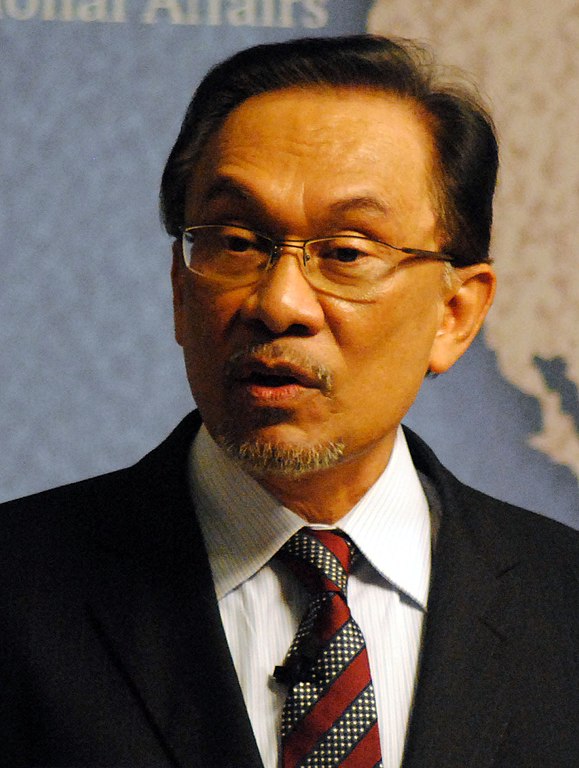
Brief: U.S.–Malaysia Disagreements Over Hamas Unlikely to Drive Change in Relationship
Publication: Terrorism Monitor Volume: 22 Issue: 8
By:

Executive Summary:
- Malaysia has maintained an ambiguously warm relationship toward Hamas, even following the October 7, 2023 attacks on Israel. Prime Minister Anwar Ibrahim is known to be a vocal defender of the group, and the country is home to Aman Palestin, a charity that is suspected of funding Hamas. Despite this, the country has maintained cordial relations with the West, and it appears unlikely that U.S.–Malaysia relations will deteriorate as a result of the two states’ diverging views.
Malaysia is an economically developing Muslim-majority country with amicable relations with the West, but its position on Hamas is increasingly putting it at odds with the priorities of the U.S.-led global counter-terrorism regime. For example, although Malaysia is tolerant of its Christian and Buddhist minority communities, it is politically sympathetic to Hamas. Prime Minister Anwar Ibrahim is known to be a vocal defender of the group, stating in the months following Hamas’s attack that Malaysia would not accept what he considers to be an attempt by the United States to unilaterally restrict support to Hamas (Bangkok Post, December 11, 2023).
Moreover, although Malaysia has generally cooperated with global anti-terrorism financing policies, the country is home to a charity that is suspected of funding Hamas: Aman Palestin (Malay Mail, December 8, 2023). According to the Malaysian Anti-Corruption Commission (MACC), which froze the organization’s assets on October 17, 2023, funds from the charity were sent to companies involved with “tourism, a shooting academy, gold mining, technology, research and media.” Aman Palestin has allegedly confirmed that some of its funds were used to purchase gold bars, which were kept at its offices. While they argue that this was not forbidden and that the gold was secured for charitable purposes as a medium for exchange, these arguments were unconvincing to the MACC, which seized the bullion as evidence of (at least) misappropriation of donations (Malay Mail, December 8, 2023). The investment into gold mining and securing of gold bars by a charity is superficially similar to Hezbollah, which uses charities for malicious purposes, enabled in part by the group’s involvement in the global illicit gold trade (for more on this, see Terrorism Monitor, May 6).
Nearly a decade before Hamas launched its October 7, 2023 “al-Aqsa Flood” Operation, Malaysia had been known as a training site for the group’s fighters. In particular, some of the tactics utilized on October 7—in particular, the use of paragliders—appear to have been workshopped at one point or another in Malaysia. Israel arrested a Hamas militant in 2014 who had allegedly joined a ten-member special unit in 2010 that had traveled to Malaysia for paragliding training, with the aim of “perfecting raids from the air” (Times of Israel, July 30, 2014). Malaysia’s Deputy Home Minister at the time denied Israel’s claims as an attempt to smear Malaysia for its opposition to Israel’s treatment of Palestinians. Curiously, however, the Deputy Home Minister specified that the “Home Ministry has never conducted clandestine training for Hamas fighters.” This does not preclude the notion that the training could have occurred with or without the Malaysian government’s knowledge under the auspices of a private organization (The Borneo Post, August 1, 2014).
Under Anwar Ibrahim, Malaysia also has officially maintained a “reluctant” position regarding Hamas’s designation as a terrorist organization, even after the October 7 massacre. The Prime Minister has not condemned the Hamas massacre at all, which makes the designation all the more unlikely (Benar News, October 31, 2023). Although it does not appear that U.S.–Malaysian relations have measurably suffered over these disagreements, there have been reverberations in “track two diplomacy.” American professor Bruce Gilley was banned from speaking at a planned event at the University of Malaya after he arrived in the country in April after he accused Malaysian officials of advocating for a “Second Holocaust” (Malay Mail, April 25). Gilley was already a controversial figure, to say the least, best known for a journal article which was redacted from Third World Quarterly in 2017, where he argued that colonial governments governed better than most present-day governments in the developing world, and would do so again if reinstituted. Gilley’s comments had supposedly been a response to Malaysian Agriculture and Food Security Minister Datuk Seri Mohamad Sabu’s December 2023 statement that “Israel kills to satisfy their desire to eradicate the Palestinian” (The Star [Malaysia], December 31, 2023). Former Malaysian Prime Minister Dr. Mahathir Mohamad had also stated in January that “[killing] Palestinian babies and children … is a part of the war for the security of Israel” because “they are likely to become members of Hamas when they grow up” (Sinar Daily, January 8).
Ultimately, the United States and Malaysia have contrasting views regarding the war in Gaza. However, the Malaysian government has not proactively supported Hamas and the country’s leaders have generally refrained from openly praising Hamas—even while they are reluctant to condemn or criticize the organization. As a result, despite the gulf between the two states on this issue, it is unlikely that U.S.–Malaysia relations will deteriorate. Moreover, Malaysia has promoted a brand of Islam consistent with pluralism, maintained cordial relations with the West, and has for the most part remained a bulwark against more extreme forms of jihadism or Salafism.



